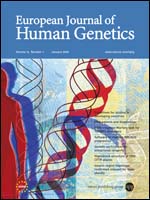 Prenatal testing based on cell-free fetal DNA in maternal serum is now possible for specific monogenic conditions. Studies have shown that prospective parents and health professionals support the use of non-invasive testing. However, some ethical issues have been raised concerning informed consent and paternal rights. The objective of this study was to explore ethical aspects of the use of non-invasive prenatal diagnostic testing for autosomal recessive disorders. The authors used a qualitative cross-sectional design, based on Thematic Analysis, and recruited 27 individuals of reproductive age who were carriers of one of four conditions: thalassaemia, sickle cell disease, cystic fibrosis or spinal muscular atrophy. Data were collected via focus groups or interviews. Participants were aware of the potential for such tests to be viewed as routine and suggested that obtaining written consent and allowing time for consideration is needed to facilitate autonomous choice and informed consent. All participants felt that mothers should be able to request such tests, but fathers who declined carrier testing should be made aware that fetal test results may reveal their status. The authors suggest that a written record of consent for non-invasive prenatal diagnosis should be used as a standard to help reinforce the serious nature of the test results. Where the father’s carrier status could be revealed through fetal testing, he should be made aware of this before the results are available. Health professionals should discuss with the pregnant woman the best way to manage unsought information about the father’s carrier status to minimise family disruption.
Prenatal testing based on cell-free fetal DNA in maternal serum is now possible for specific monogenic conditions. Studies have shown that prospective parents and health professionals support the use of non-invasive testing. However, some ethical issues have been raised concerning informed consent and paternal rights. The objective of this study was to explore ethical aspects of the use of non-invasive prenatal diagnostic testing for autosomal recessive disorders. The authors used a qualitative cross-sectional design, based on Thematic Analysis, and recruited 27 individuals of reproductive age who were carriers of one of four conditions: thalassaemia, sickle cell disease, cystic fibrosis or spinal muscular atrophy. Data were collected via focus groups or interviews. Participants were aware of the potential for such tests to be viewed as routine and suggested that obtaining written consent and allowing time for consideration is needed to facilitate autonomous choice and informed consent. All participants felt that mothers should be able to request such tests, but fathers who declined carrier testing should be made aware that fetal test results may reveal their status. The authors suggest that a written record of consent for non-invasive prenatal diagnosis should be used as a standard to help reinforce the serious nature of the test results. Where the father’s carrier status could be revealed through fetal testing, he should be made aware of this before the results are available. Health professionals should discuss with the pregnant woman the best way to manage unsought information about the father’s carrier status to minimise family disruption.
